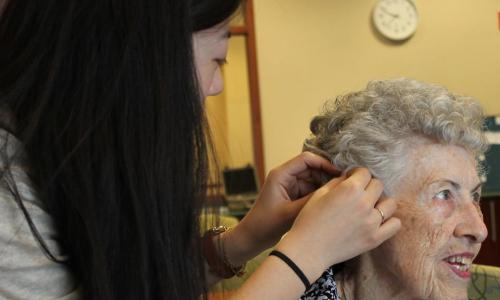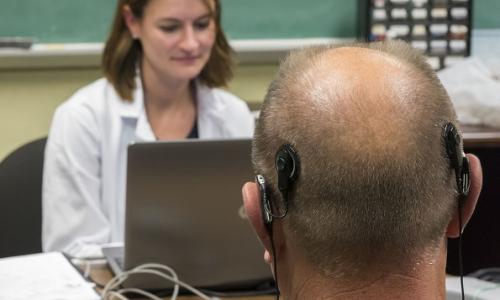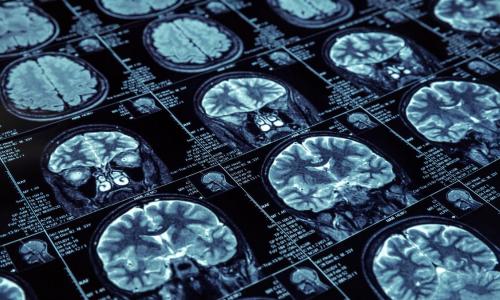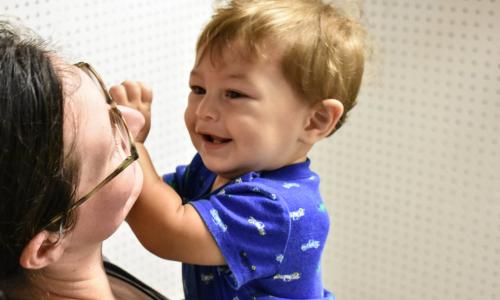
Applied Clinical Research
Millions of people around the world have communication disorders that impact their educational, social and vocational opportunities. Our ultimate research goal is to develop effective methods for the prevention, identification and treatment of impairments in hearing, speech, language, voice and fluency across the lifespan.

Assistive Technology-Rehab for Speech, Language, and Hearing
Department researchers and clinicians are at the cutting edge of new technologies and therapy approaches to assist people with hearing impairment, such as cochlear implants, digital hearing aids and perceptual training. We also explore improved methods for treating individuals who stutter, who have lost language due to stroke or injury, who have voice disorders, who have childhood language-learning disorders, or autism.

Cognitive Neuroscience and Communication Disorders
Better understanding of the brain mechanisms that support speech perception, language and speech production plays an important role in advancing detection and treatment of communication disorders. Our faculty work with the campus Neuroscience and Cognitive Science program (NACS), the Maryland Neuroimaging Center (MNC) and the campus Language Sciences initiative to discover the causes of hearing, speech and language impairments and treat them more effectively.

Communication and Communication Disorders Across the Life Span
From detection of risk for communication disorders in very young infants to treatment of stroke and hearing loss in the elderly, our faculty work with individuals of all ages to understand and address conditions that otherwise limit the ability to hear and speak with others comfortably an effectively.


